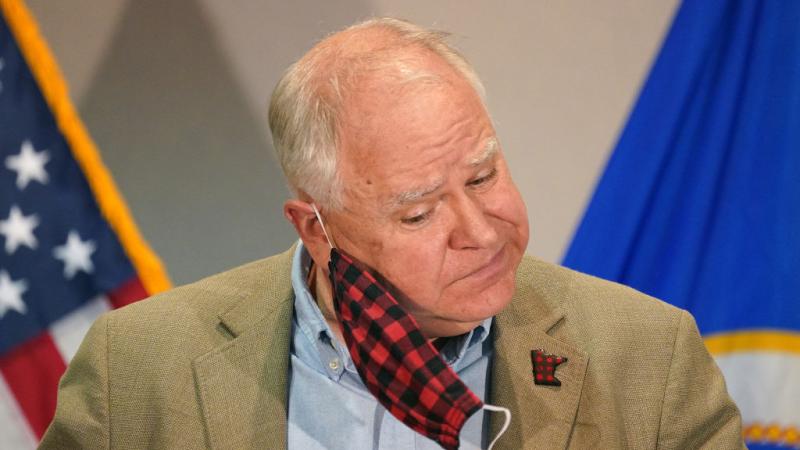USAID takes soundings for potential $40M-$48M climate change aid program for Colombia
At COP27 climate summit in late November, wealthy nations agreed to compensate more vulnerable countries for purported "loss and damage" resulting from climate change.
The Golden Horseshoe is a weekly designation from Just The News intended to highlight egregious examples of wasteful taxpayer spending by the government. The award is named for the horseshoe-shaped toilet seats for military airplanes that cost the Pentagon a whopping $640 each back in the 1980s.
This week's Golden Horseshoe is awarded to the United States Agency for International Development for potentially spending up to $48 million over the next several years to help Colombia achieve its climate change remediation goals, according to a notice posted on Nov. 23.
"The United States Agency for International Development (USAID) is seeking feedback through this Request for Information (RFI) from entities interested in the attached Concept Paper for the USAID/Climate Finance Activity," the foreign aid agency announced. "This Activity will leverage and mobilize public and private finance to support Colombia's climate adaptation and mitigation targets in key sectors."
USAID anticipates providing $40 million to $48 million in aid to support Colombia's goals over the 2023-2028 time frame. The deadline to submit feedback on the potential funding is Jan. 9.
The Climate Finance Activity Concept Paper attached to the RFI details Colombia's climate mitigation and adaptation goals, explaining the country expects to reduce greenhouse gas emissions by 51% by 2030.
"Human-driven climate change is a global crisis, and it is disrupting ecological systems, affecting economic growth, and increasing poverty, conflict, and instability," the concept paper claims. "In Colombia, increased intensity and duration of extreme weather events have negatively impacted communities, the economy, and the environment.
"Climate finance refers to using public and private funding to support the country's climate mitigation actions. USAID can leverage climate financing to increase funding in projects and businesses that address climate change and help limit global warming to 1.5 degrees Celsius, as called for under the Paris Agreement."
The U.S. government funding anticipated in this RFI is envisaged as but a small down payment in a far larger, global public and private financial commitment to Colombia to address climate change.
"According to the Colombian National Planning Department (DNP), reducing GHG emissions by 20 percent will require an annual investment of USD $1 billion, with 62 percent of this investment coming from the private sector," the concept paper reports. "The DNP also estimates that an additional USD $2.1 billion is needed to help key sectors and regions prepare for future climate events and probable climate change scenarios, like reduced rainfall and increasing temperatures."
As previously reported by JTN, countries at the COP27 climate summit reached an agreement in late November for wealthy nations to compensate more vulnerable countries for "loss and damage" resulting from climate change.
While USAID is an independent federal agency, it receives guidance from the secretary of state. President Biden's 2023 budget request would increase USAID and State Department climate change funding to $2.3 billion.
"Investment figures mentioned in the Request for Information (RFI) illustrate anticipated needs to address the technical problem described in the concept paper and do not represent USAID funding commitments," a USAID spokesperson emphasized in a statement to Just the News. "The RFI is a market research tool to gather stakeholder feedback. The information received will be used to refine the design of this new climate finance activity under the direction of USAID/Colombia's 2020-2025 Country Development Cooperation Strategy."
















